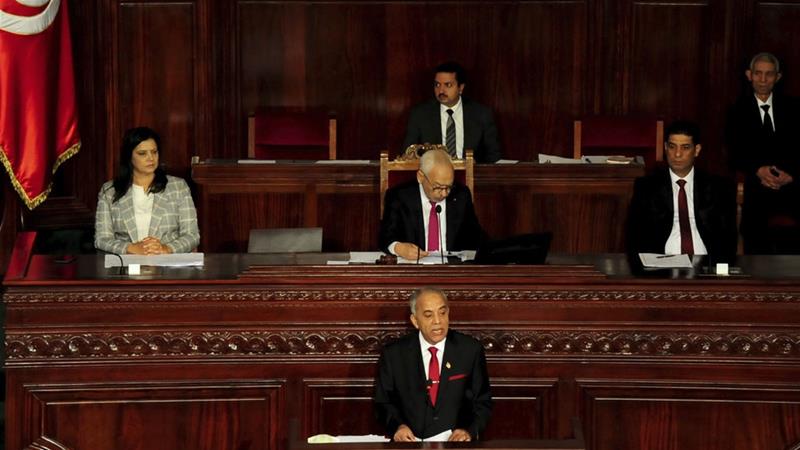During a heated day-long parliamentary session on Friday, only 72 of the 213 legislators present voted in favour of Jemli’s cabinet.
Jemli, an agricultural engineer by training, had in early January announced the formation of a cabinet made up of independent technocrats, a move that came a month after being nominated by the moderate Islamist Ennahdha party to head a new government.
Ennahdha emerged as the most powerful party after winning the most seats in the country’s October parliamentary election. But the self-described Muslim Democratic party’s 52 of a total 217 seats available for grabs meant that it still needed to win the backing of other parties.
Tunisian President Kais Saied, who was also elected in October, now has 10 days to designate a new prime minister. If Saied’s appointee fails to form a government, parliament is dissolved and a new election will be called.
Friday’s vote is seen as a big setback for Ennahdha, which has been directly or indirectly in power for a large part of the last nine years, and it risks delaying reforms needed to revive the country’s stuttering economy.
In a move that demonstrated the difficulties for Tunisia’s divided political class to form a strong and consensual government, Ennahdha had admitted on Thursday to having “reservations” over the team presented by its own nominee.
Further instability ahead
Free Destourian Party leader Abir Moussi, who during the campaign trail pledged to ban Ennahdha if granted a majority, said she will not give her confidence to a “government of Ennahdha and the Muslim Brotherhood”.
Other politicians questioned the competence of certain ministers, while Qalb Tounes, the party of media mogul and presidential runner up Nabil Karoui, whose 38 seats make it the second-biggest force in parliament, deplored the lineup of the proposed cabinet.
Observers and members of civil society had castigated the appointment of magistrates regarded as pro-Ennahdha to head key ministries such as justice and the interior.
Saied’s profile as an independent with no natural allies in the lower chamber has raised concerns among analysts that the assembly’s looming dissolution risks further delaying measures needed to curb inflation and unemployment.
In 2016, the International Monetary Fund approved a four-year, $3bn loan for Tunisia in return for major reforms, some of which are disputed.
Read Also: Malta Gets New PM After Reporter Murder Outcry
Due to delays, the country has only received about $1.6bn so far, while the facility ends in April and the first repayments are due in November.
Since the 2011 revolution that toppled long-time ruler Zine El Abidine Ben Ali, Tunisia has been trying to revive a struggling economy but unemployment continues to affect the population, especially the young, and inflation is eroding an already low purchasing power.
SOURCE: AL JAZEERA AND NEWS AGENCIES

